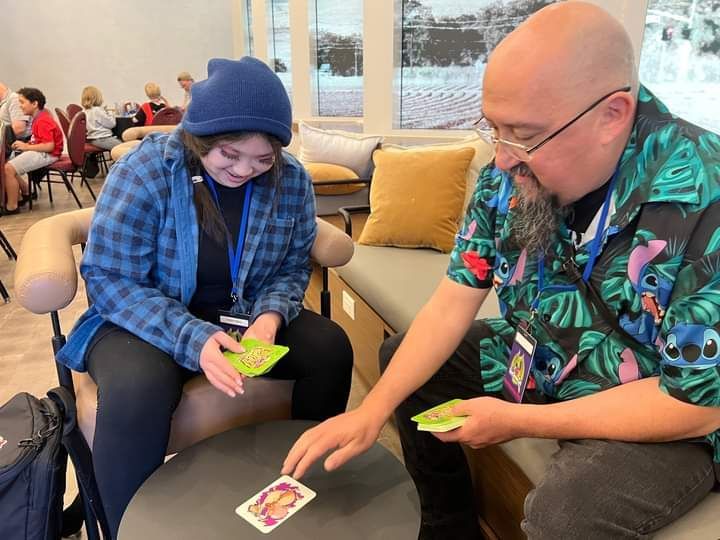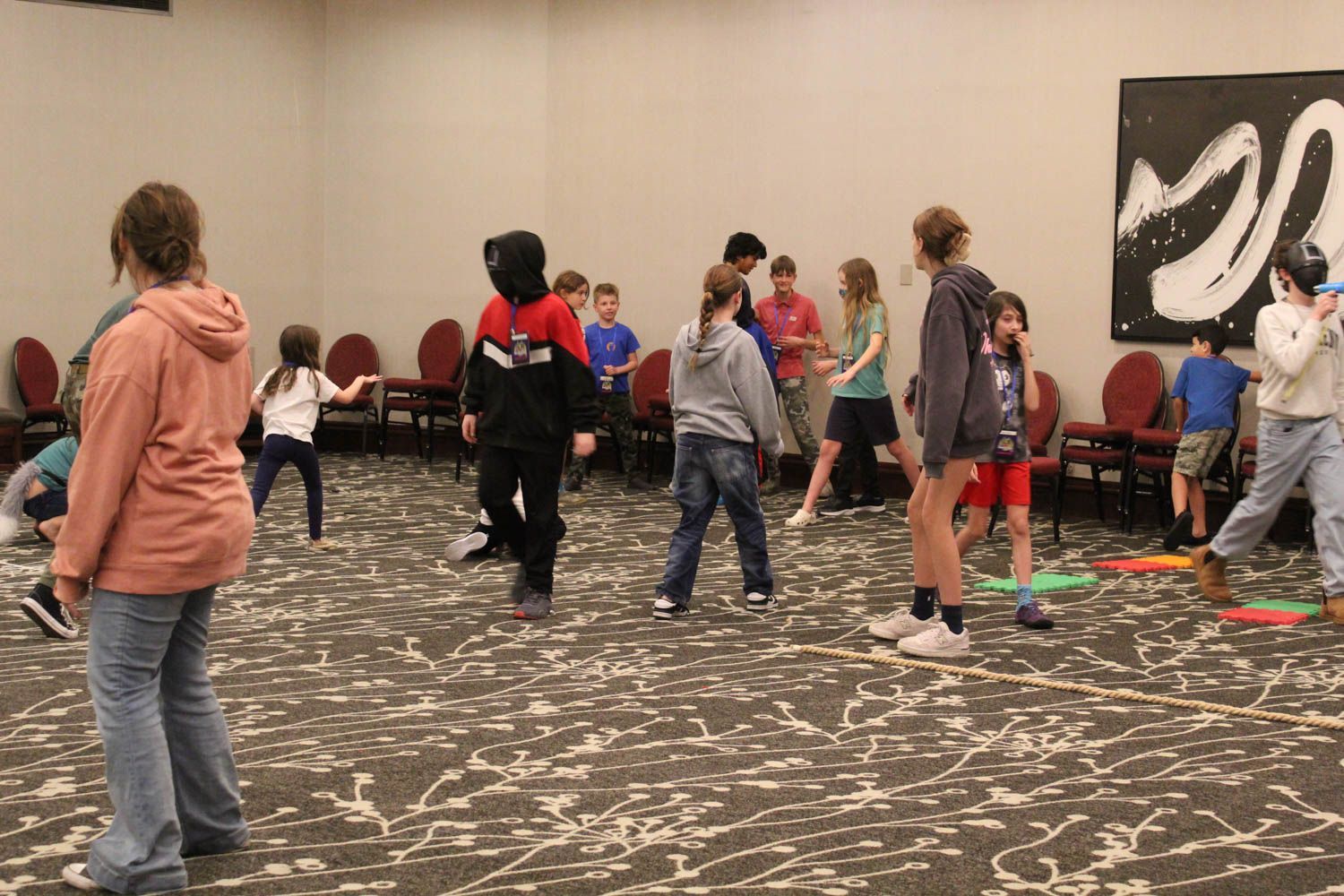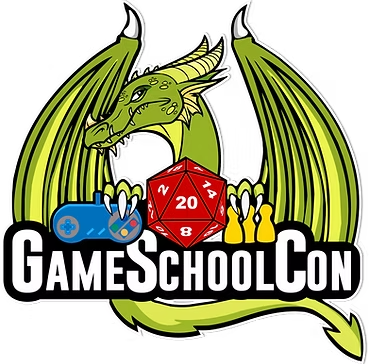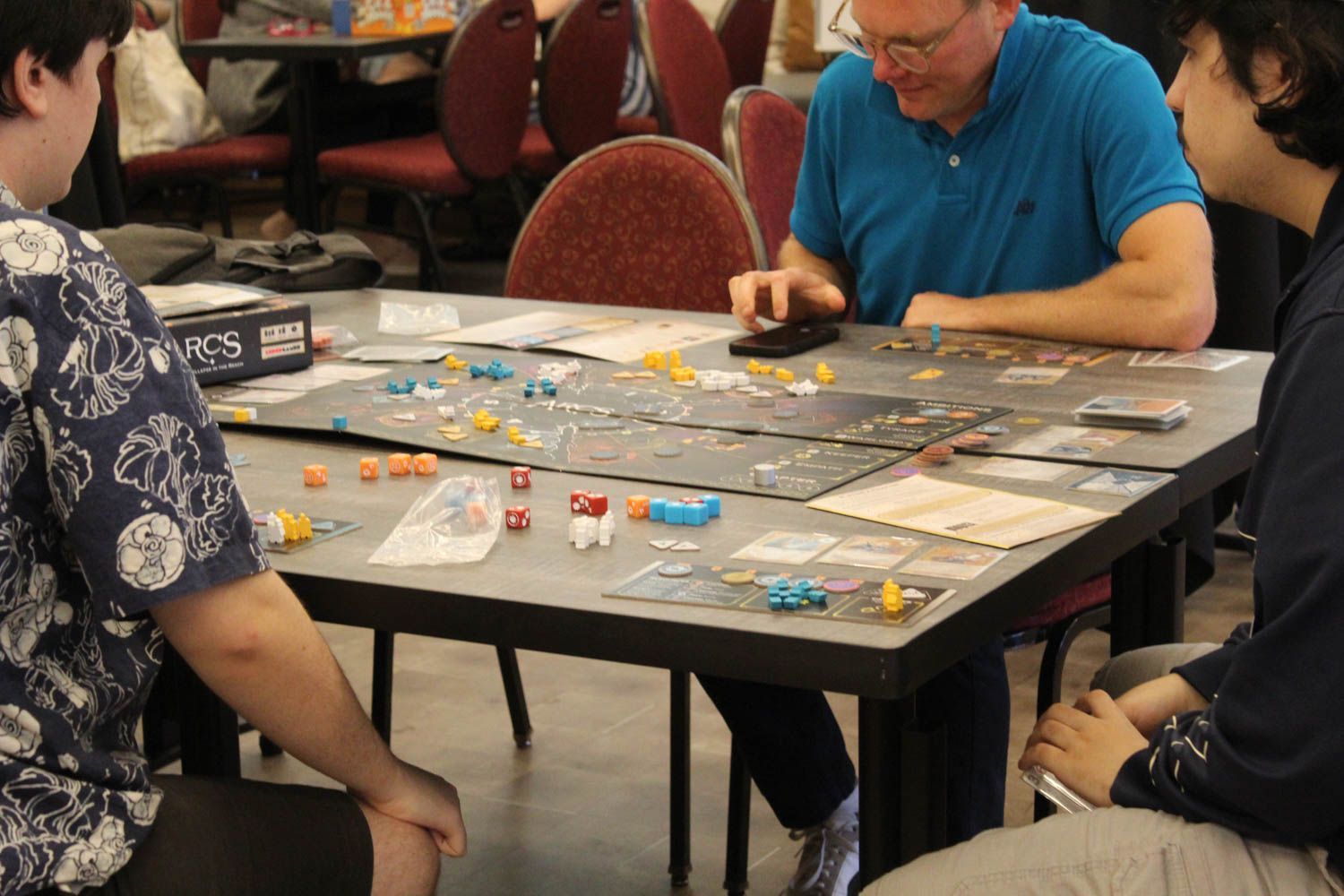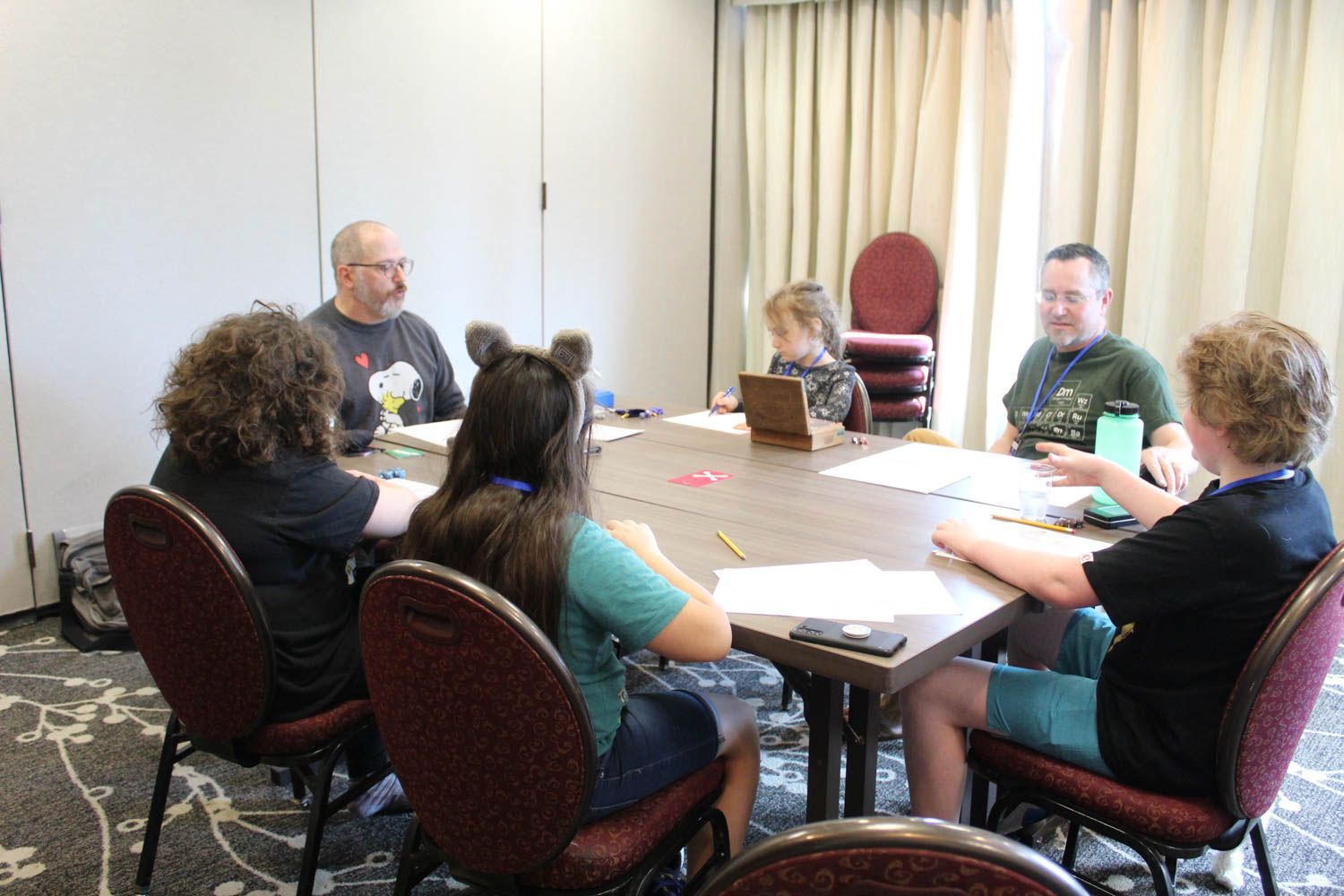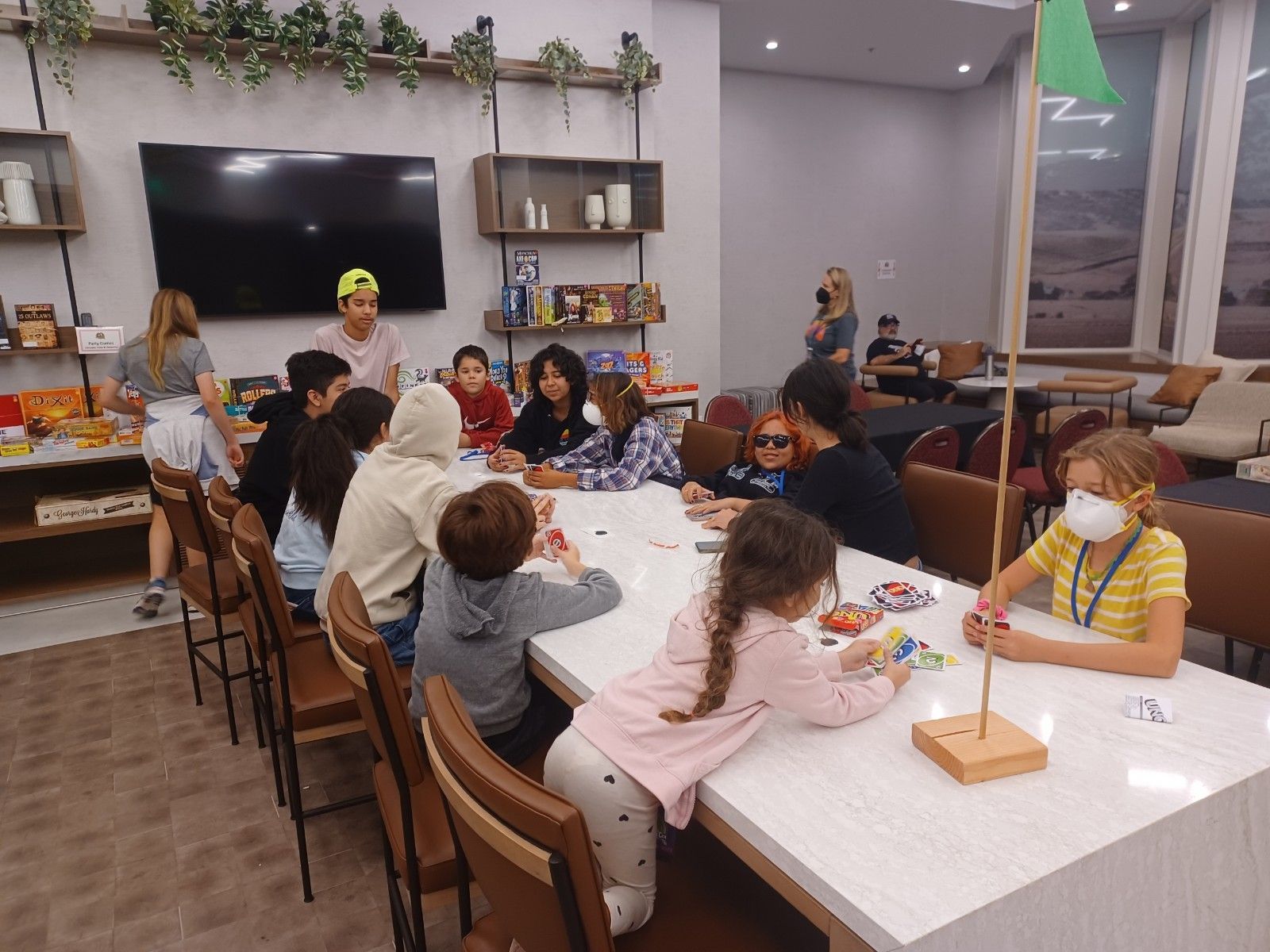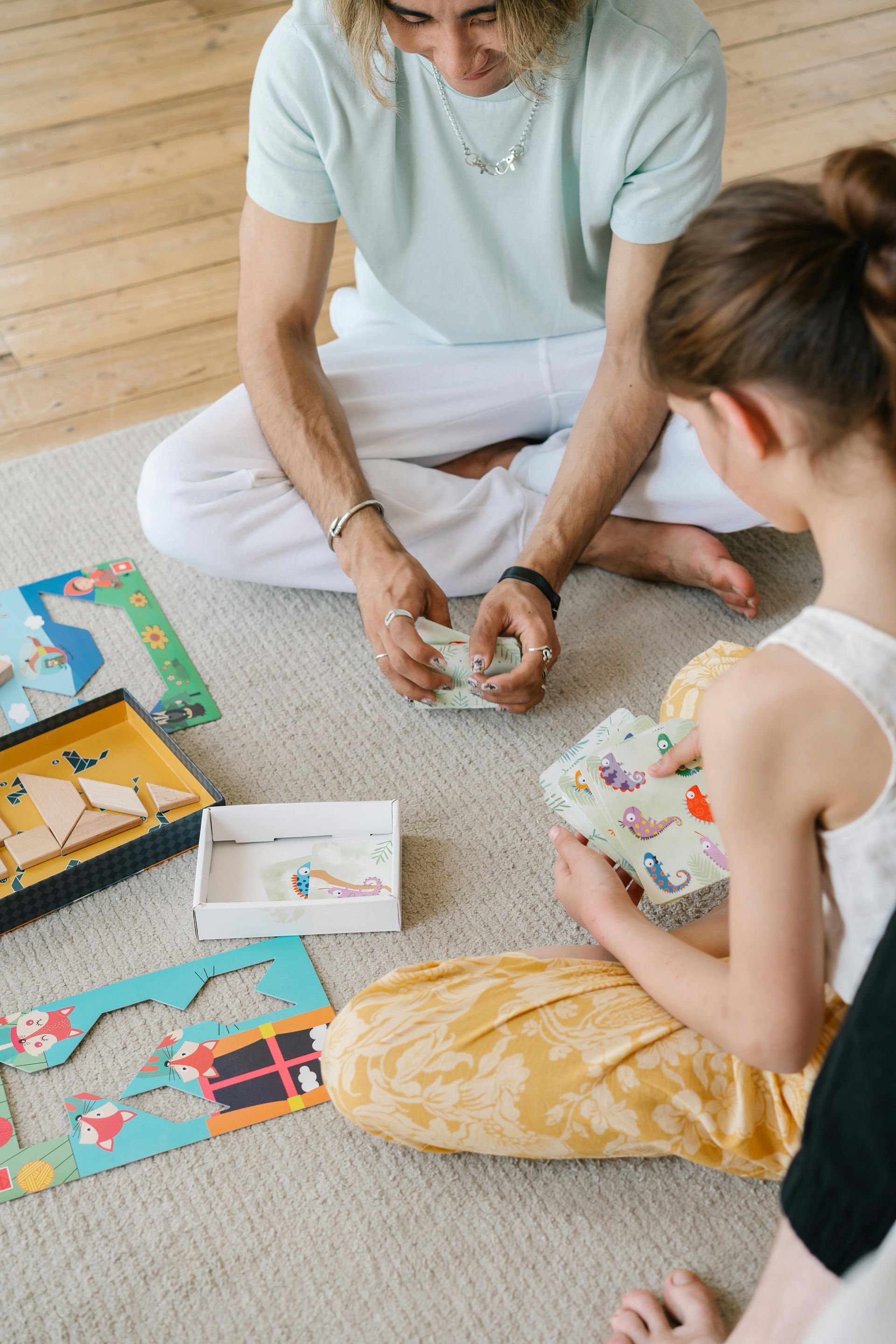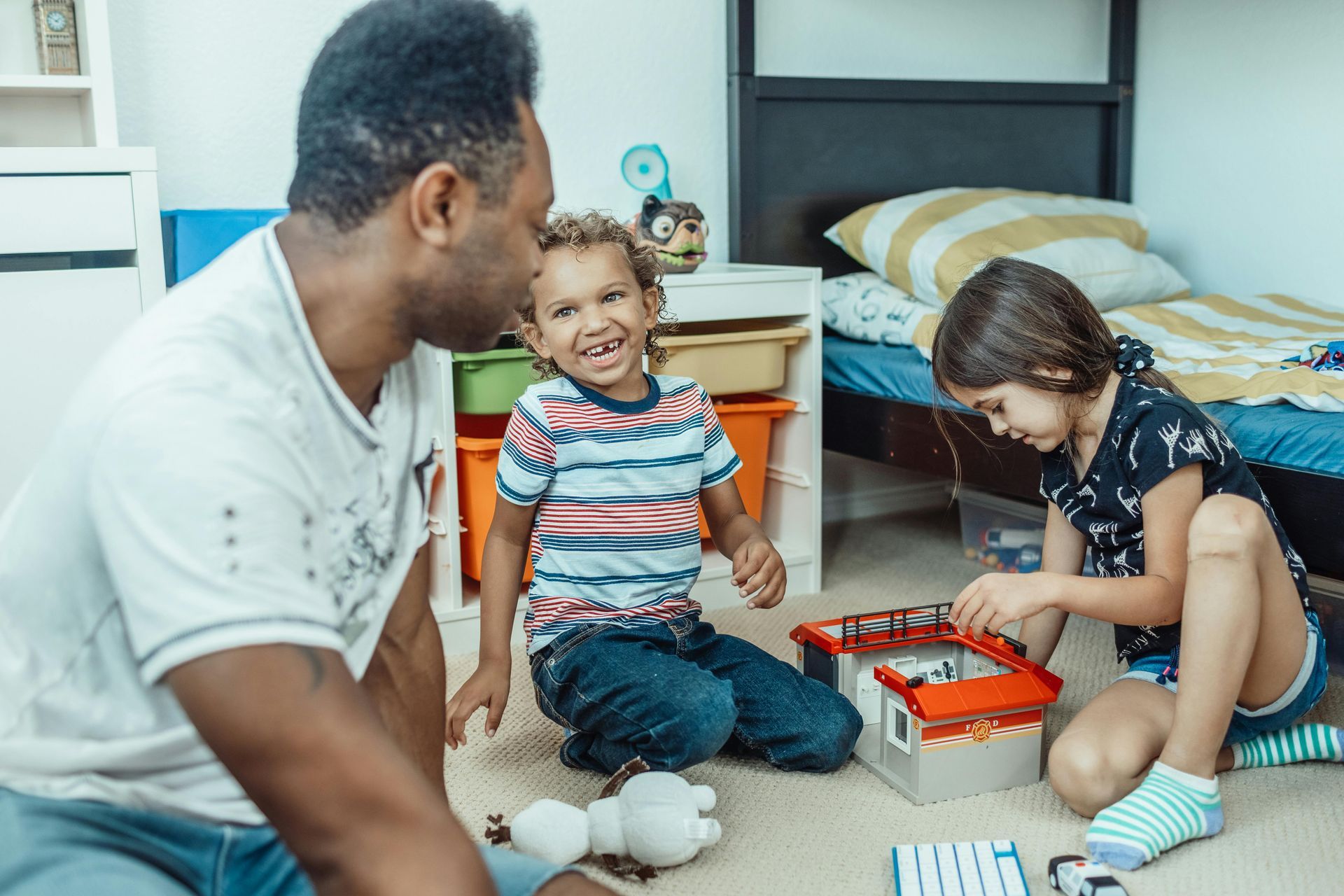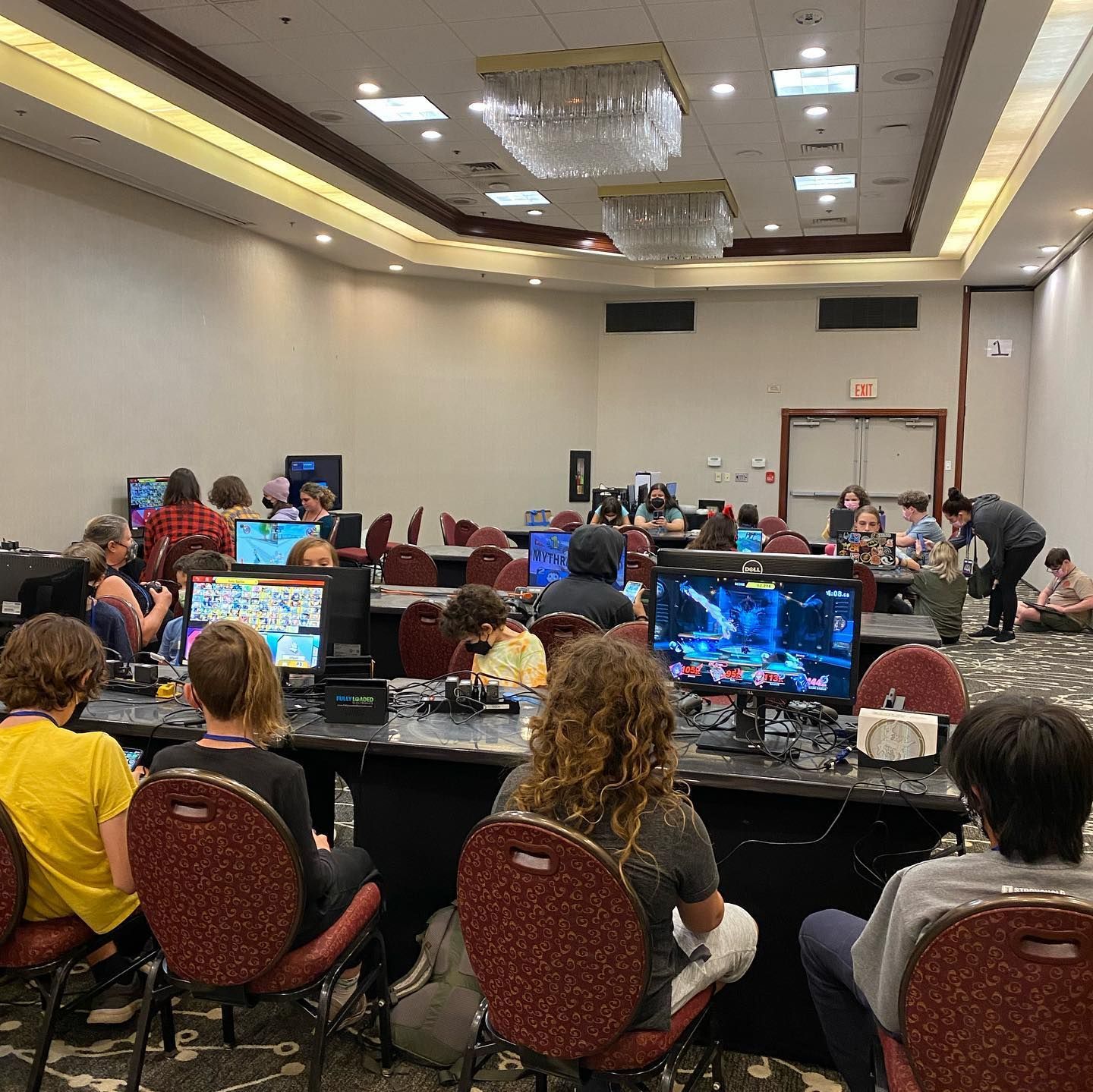February 19-22, 2026
Why Video Games Deserve a Place in Your Child’s Learning Journey
July 4, 2025
If you’ve ever worried that your child is spending too much time playing video games, you’re not alone. Many parents view gaming as a waste of time—something to be limited, not embraced.
But what if we told you that video games can be one of the most powerful learning tools your child has access to?
From problem-solving and literacy to emotional resilience and community building, video games teach real skills that matter in the real world. And at GameSchoolCon, we believe it’s time to shift the narrative—from fear and guilt to curiosity and connection.
Read more to explore what the research says about video games, why they matter, and how they fit into a healthy, balanced approach to learning through play.
All Games Are Educational—Even and Especially Video Games
The truth is, all games are educational. Whether your child is rolling dice in a board game or navigating an open-world RPG on a screen, they’re learning—often more deeply than we realize.
According to the American Psychological Association:
“Certain types of video games can improve cognitive functions such as spatial navigation, reasoning, memory, and perception.”
—
APA, 2013 [source]
That means games like Minecraft, Portal 2, and Legend of Zelda aren’t just fun—they’re training your child’s brain to think critically, adapt, and solve complex problems.
What Kids Learn From Playing Video Games
Let’s break down the real, research-backed benefits of video games:
1. Problem-Solving and Critical Thinking
Many games present challenges that require logic, creativity, and experimentation. Puzzle games like The Witness or open-world titles like Minecraft ask players to analyze their surroundings, strategize, and iterate, just like real-world engineers or scientists.
Action video games have been shown to improve the speed and accuracy of visual processing and decision-making. According to a study published in Current Directions in Psychological Science:
“Video game play leads to faster reaction times and more efficient attentional allocation without sacrificing accuracy.”
— Green & Bavelier, 2010 [source]
This kind of enhanced processing speed can benefit academic performance, sports, and real-life decision-making.
2. Collaboration and Teamwork
Multiplayer games like Overwatch, Fortnite, or Among Us require real-time communication, strategy, and cooperation. Even if your child is playing online, they’re practicing social negotiation and teamwork.
Many kids who struggle socially in person thrive in gaming spaces, where they can connect around shared goals and feel seen.
3. Memory, Attention, and Focus
Studies show that gamers outperform non-gamers in tasks involving sustained attention, visual-spatial processing, and working memory.
“Playing video games can change how our brains perform, and even their structure.”
—
Frontiers in Human Neuroscience, 2017 [source]
4. Resilience and Growth Mindset
Video games reward persistence. Kids fail, try again, and eventually succeed—all in a low-stakes, self-directed environment. This natural feedback loop builds resilience and grit.
In fact, many therapists use video games as tools to help kids with anxiety, executive functioning challenges, or emotional regulation.
“But It’s Not Real Learning…”
Many parents say: “Sure, they’re learning something, but it’s not academic.”
Let’s challenge that idea.
When a child spends 30 minutes reading quest dialogue in Zelda or strategizing resource management in Terraria, that’s real literacy, real math, and real critical thinking—even if it doesn’t look like a worksheet.
In fact, in one study, students who played Portal 2 outperformed those who used a formal brain-training program on problem-solving and persistence tasks [source].
How GameSchoolCon Embraces Video Games
At GameSchoolCon, we recognize that video games are part of the play-based learning ecosystem. Just like board games, RPGs, and creative arts, video games help kids:
- Connect with peers
- Feel competent and confident
- Explore interests and identities
- Practice valuable life and academic skills
Some of the ways we celebrate video games at GameSchoolCon:
- Panels and workshops on gaming and neurodiversity, screen time, and digital literacy
- Exhibitors and creators building educational and story-driven games
- Family discussions on boundaries, media literacy, and collaborative gaming
Visit our
Schedule page to see sessions focused on digital play and learning.
How to Support Healthy Gaming at Home
You don’t have to hand over the Xbox and walk away. Supporting your child’s gaming life doesn’t mean abandoning limits—it means approaching gaming with curiosity, not fear.
Here are some tips:
- Play with your child.
Let them teach you how to play—it builds connection and trust.
- Ask questions. “What’s your goal in this game?” “What are you learning?” “What was the hardest part today?”
- Co-create boundaries. Decide together on screen limits, game types, and online etiquette.
- Talk about feelings. Use games as a bridge to talk about frustration, teamwork, or handling challenges.
FAQ: Video Games and Learning
Are all video games educational?
Yes—but in different ways. Games range from story-driven and academic (like Kerbal Space Program or Civilization VI) to emotionally rich (Celeste, Spiritfarer) or fast-paced and reflex-based (Rocket League, Mario Kart). Every game teaches something—skills, emotions, patterns, strategies.
My child is obsessed with one game. Is that bad?
First, think about the words we use—terms like “obsessed” or “addicted” are powerful labels to put on a child. Intense interest is extremely common in kids and teens, especially when they’ve found something that challenges and excites them.
Instead of focusing on how much time they spend on one game, try asking what they love about it. Is it the story? The creativity? The sense of mastery? You might be surprised how deep and meaningful the experience is for them. What looks like “too much” from the outside is often a sign of engagement, curiosity, and motivation.
Rather than fight the interest, try to connect through it—ask questions, play with them, and use it as a window into what lights them up.
Should I limit screen time?
It depends on your family’s needs. What matters most is balance—making time for movement, social play, creativity, and rest. At GameSchoolCon, we explore screen time in a judgment-free way that respects both child autonomy and parental support.
Do violent video games make kids aggressive?
This is one of the most common fears about video games, but research tells a more nuanced story. Most studies show no direct, causal link between video game violence and real-world aggression in children. Context matters: the child’s temperament, environment, and how the game is used all play a role.
Many kids can distinguish clearly between fantasy and reality—and use games as a way to process stress or explore complex emotions. Instead of focusing only on content ratings, focus on how your child interacts with the game and how it affects their mood and behavior.
At GameSchoolCon, we encourage open conversations about media, emotional regulation, and healthy boundaries.
How can I tell if a video game is a good fit for my child?
Look for games that match your child’s interests, maturity level, and learning style. Some kids love fast-paced action, while others thrive in quiet, creative environments. Consider whether the game:
- Encourages creativity or exploration
- Builds skills like problem-solving, reading, or collaboration
- Leaves your child feeling good (not frustrated or overstimulated)
Sites like Common Sense Media are great for reviews, but your best resource is your child. Ask them to show you their favorite game—and why they love it.
What if my child gets frustrated or emotional while playing video games?
Frustration is actually a natural and valuable part of learning—in games and in life. Video games often challenge kids to try, fail, adjust, and try again, which can build resilience and perseverance over time.
That said, it’s important to pay attention to emotional regulation. If a game consistently leads to meltdowns or stress, it might be too difficult, too competitive, or lacking in healthy boundaries. Step in with curiosity, not criticism. Ask:
- “What’s making this part hard?”
- “Do you want to take a break and come back with fresh eyes?”
- “What would help you enjoy it more?”
Use those moments to model emotional awareness and coping strategies, and when possible, play alongside them. You might find that working through those tough levels becomes a shared victory.
Join the Conversation at GameSchoolCon 2026
February 19–22, 2026
Sonesta Irvine – Orange County Airport Hotel, California
If you want to explore how all kinds of play—including digital play—can support your child’s learning journey, GameSchoolCon is the place to be.
Register now and join families who believe learning can (and should!) be joyful!
